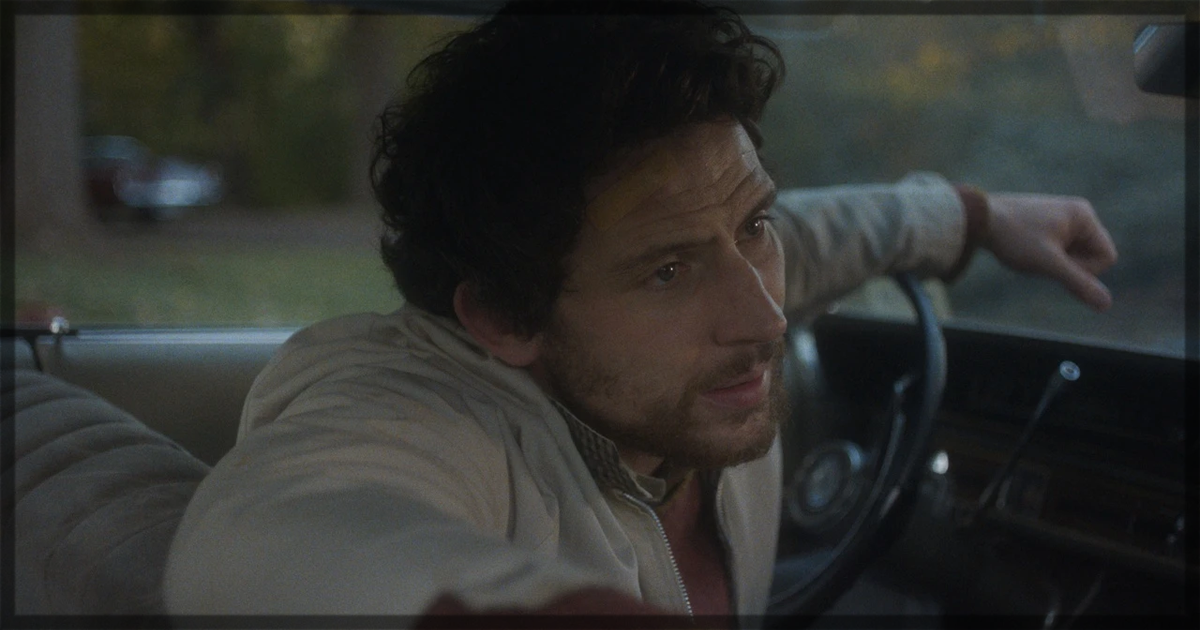The Mastermind, Kelly Reichardt’s quietly hypnotic film about a worryingly inept thief, is almost about everything else except the heist our anti-hero spends the first half-hour planning.
The loose structure unravels just as quickly as the plan itself, and the longer we spend adrift with James (Josh O’Connor), it becomes apparent that Reichardt is more interested in making a point about America itself, rather than just a petty crime somewhere out in the midwest.
The plot is a wry, mundane caper full of losers
At first, there is a heist, one that’s so comically small that we’re naturally expecting it to lead into something greater. We first meet James casing out an art museum. The paintings themselves are unremarkable, yet apparently worth something to someone. As he leaves, the location itself proves just as immaterial. It’s the kind of small town destination where forgotten works go to retire.
James hires a couple of acquaintances nobody would call friends, and he lays out what he thinks is a foolproof plan. All they need is a sleepy morning and for everyone to follow his orders to the letter. Before they even get started, one of the guys flakes out. Another pulls a gun to impress someone, anyone. James ignores the warning signs everyone else can see coming a mile away. Even when he finally has the paintings at hand, the first reaction others have is bemusement. Were these abstract pieces really worth the trouble?
What happens next is a fascinating mix of things both mundane and achingly pathetic. As James travels from one burning bridge to another, we can sense the despair and rejection of reality at every turn. At the same time, Reichardt quietly builds a collage of Nixon’s America, where the country began to distrust authority, and authority responded with violence towards its citizens.
Reichardt paints an intimate portrait of Americana
Reichardt’s innate ability to weave together a time and place remains unmatched. This is an understated film that says more in the quiet moments than it does in dialog. It’s easy to see how James’ lackadaisical attitude would be appealing in youth. He’s still tall and handsome, but on the wrong side of thirty with two kids, a wife, and no job. He can see his teenage years just across the tracks and has no clue what to do now, surrounded by all these adults.
O’Connor is magnificent in the part. Watch as he leans into his wry smile and learned mannerisms in the beginning, and just how they chip away as he comes to realize how little they work. It’s a brilliant performance of a man deluding himself into thinking he could be something he never was. By the time James even acknowledges the possibility of his failures, he’s circling the drain so fast he can’t even see where he’s going.
It’s in little moments like these that Reichardt finds the most joy and subversion of genre expectations. In theory, The Mastermind hits every beat one would expect from a story like this, yet they never feel trite or familiar. Which isn’t to say this is some dour exercise in miserabilism. Quite the opposite. While The Mastermind is sad, it’s also very funny. Or at least tragicomic.
In one memorable scene, O’Connor’s James is lectured by a far more enlightened thief, who, despite the circumstances, parts with some choice knowledge on how not to plan these heists. He’s utterly sincere and kind, which is funny given the situation. But it’s even funnier to watch O’Connor pull a sour face, as if he’s a kid who knows he’s getting help, but also adamant about not accepting it out of principle.
The Mastermind draws parallels to present-day America
As James flails across the heartland, Reichardt draws parallels between the unease of the 70s and the political dumpster fire of modern day America. It’s never overt, but more of a quiet, frustrated sigh at how little things have changed. Like James, America puts on a good show and a brave face, but it’s increasingly clear there’s nobody steering the bus.
But we love an underdog, no matter how self-inflicted their troubles are. When James visits once close friends, now understandably distant and welcoming only to a point, we can see the fascination on their faces. This is a felon, and he’s in their kitchen! He stuck it to the man, just like we always said we should.
It’s not long before the realization sinks in that James is no Clyde, and he certainly has no Bonnie by his side. By morning, as the initial buzz wears off, it’s mesmerizing how the body languages have changed. Almost as if everyone is a little embarrassed about their giddiness.
It’s the side of these stores we rarely see, or properly acknowledge when we do. Even the title hangs over the story as an ironic epitaph. James isn’t a mastermind; he can barely plan his way out of a parking lot. He isn’t even a rebel without a cause, because that would require a conviction of some kind. “I probably should have planned this better”, he shrugs at one point.
It remains unclear whether he’s talking about the heist, or his life.
The Mastermind recently played at the Cannes Film Festival.
Learn more about the film at the MUBI site for the title.
You might also like…


